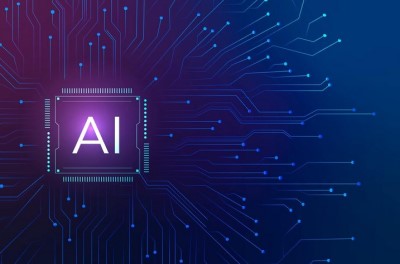
How to prioritise UX design for a successful career?
June 12, 2024How to prioritise UX design for a successful career?

In recent years, artificial intelligence (AI) has made significant strides across many industries, including website development and design. AI technologies are reshaping how businesses create and manage websites, offering a range of tools and solutions that not only streamline the process but also enhance user experience and optimize performance. From automating design tasks to improving website functionality, AI is fast becoming a game-changer in web development.
For businesses aiming to stay ahead of the curve, integrating AI-driven technologies can lead to websites that are more personalized, responsive, and efficient. But how exactly is AI making this possible?
AI-Powered Design Automation
One of the most apparent impacts of AI is its ability to automate time-consuming design tasks. With AI-driven design tools, developers can significantly cut down on the manual labor involved in crafting a website's look and feel. For example, AI design platforms like Figma AI use machine learning to assist designers in generating layout ideas, adjusting color schemes, or even suggesting typography. These tools analyze user preferences and automatically create layouts that are both visually appealing and functional.
Additionally, AI can provide personalized design templates based on user inputs, helping businesses create unique websites that align with their brand identity without needing extensive design expertise. By leveraging AI in the design phase, companies can save valuable time while ensuring their website remains on-trend and optimized for user engagement.
Enhanced User Experience Through AI
One of the most critical aspects of modern web design is user experience (UX), and AI is playing an integral role in optimizing this area. AI algorithms can analyze user behavior on websites in real-time, providing actionable insights into how visitors interact with various elements on a page. This data can be used to tweak website layout, content placement, and navigation paths to make the user journey smoother and more intuitive.
Tools like Google Optimize and Microsoft Clarity use AI-driven heatmaps and analytics to show exactly where users are clicking, scrolling, or abandoning a page. AI can also predict user behavior based on past interactions, allowing businesses to personalize content and offers for each visitor, resulting in higher engagement rates and conversions.
The rise of AI chatbots is another way that AI is transforming UX. Chatbots powered by natural language processing (NLP) can now provide instant customer support, guide users through the website, and even recommend products or services based on user preferences. By enhancing customer interaction and reducing response time, AI-powered chatbots improve overall user satisfaction.
AI-Driven SEO and Content Optimization
AI is not only changing how websites are designed but also how they perform in search engines. Search engine optimization (SEO) is crucial for driving traffic, and AI tools are helping developers and marketers optimize websites more effectively than ever before. With AI-powered platforms like Lighthouse or Yoast SEO, businesses can automate key SEO tasks such as keyword research, meta tag generation, and content analysis.
These AI tools analyze vast amounts of data to determine the best ways to improve search rankings, providing recommendations on content structure, backlinks, and page speed. Additionally, AI algorithms can adjust SEO strategies in real time based on new search trends, ensuring websites remain competitive in an ever-changing digital landscape.
Furthermore, AI can help personalize content for specific user segments, improving engagement. For instance, AI can suggest content updates based on user preferences or behavior patterns, ensuring that the website remains relevant to its audience.

Predictive Analytics and User Data Insights
AI’s ability to analyze large sets of user data allows businesses to make data-driven decisions about their website. Predictive analytics, powered by AI, can anticipate future user behavior by analyzing past interactions and patterns. This means that website developers and business owners can optimize the site for future needs before issues arise.
For example, AI can predict when a particular website feature might become outdated or when users are likely to abandon the site due to poor performance. This forward-looking approach enables businesses to stay proactive, implementing changes before losing potential customers. AI-driven insights also allow for better A/B testing, helping businesses find the most effective designs, calls-to-action, and user paths.
AI for Website Accessibility
One of the less talked about but incredibly important applications of AI is improving website accessibility. AI tools can now analyze websites and suggest improvements to ensure they are compliant with accessibility standards (such as WCAG). For instance, AI can automatically generate alt text for images, identify missing ARIA tags, or even flag sections of a site that might be difficult for users with disabilities to navigate.
By utilizing AI for accessibility, businesses can ensure their websites are inclusive, catering to all users, regardless of their physical abilities. This not only enhances the user experience but also broadens the reach of the website to a more diverse audience.
AI is transforming the landscape of website development and design in profound ways. From automating design processes to enhancing user experience, SEO, and accessibility, AI is helping businesses create more personalized, efficient, and engaging websites. As AI technologies continue to evolve, businesses that embrace these tools will be better equipped to stay competitive, delivering cutting-edge websites that meet the demands of modern users.
Integrating AI into your web development strategy is no longer optional—it's a necessity for staying ahead in a rapidly digitalizing world. Whether you’re looking to improve UX, optimize for search engines, or create a more accessible website, AI is the future of web development and design.




